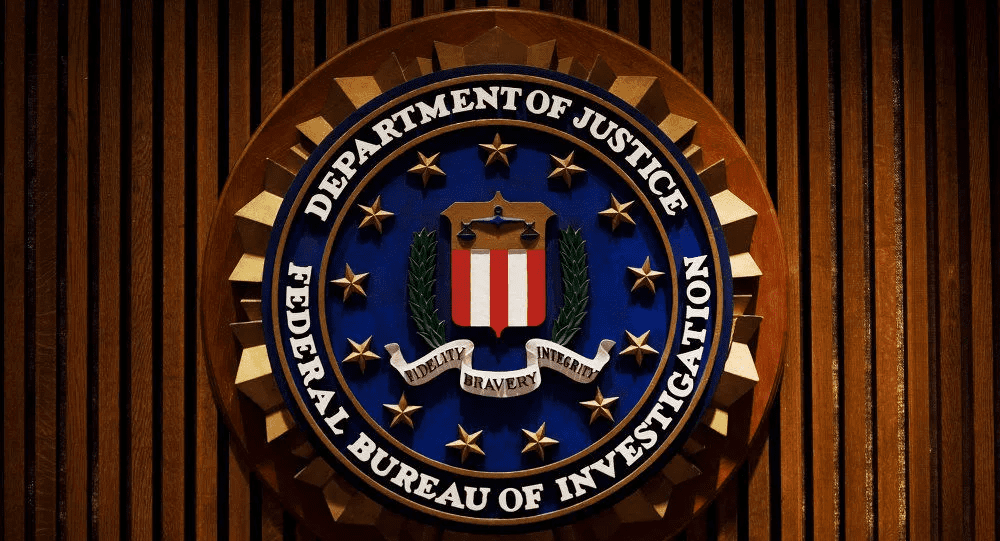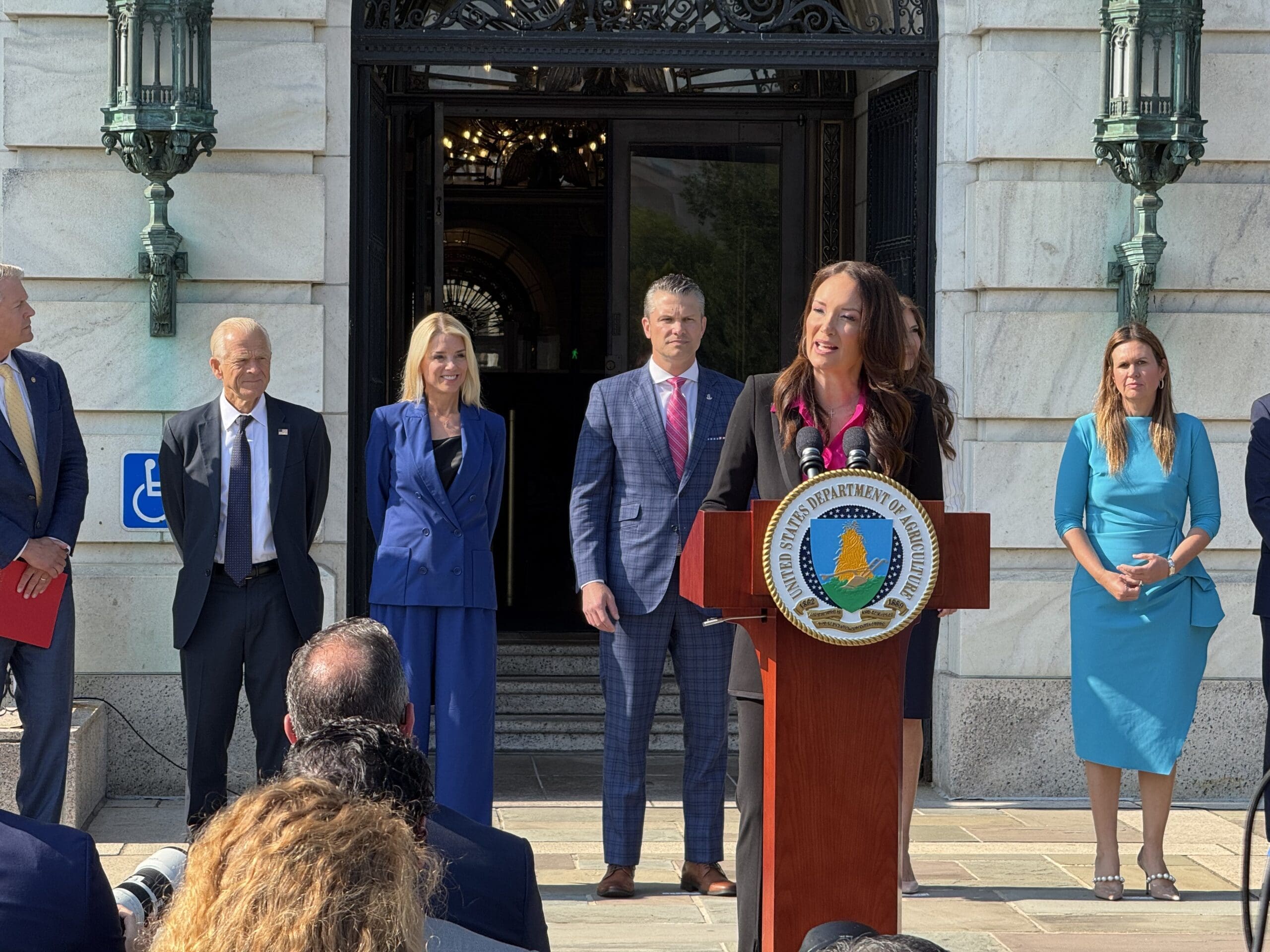During a recent hearing of the Senate Border Security Committee, Texas Attorney General Ken Paxton weighed in on the implications of declaring an invasion under Article I of the U.S. Constitution.
The remarks came at the beginning of the hearing before testimony on four bills dealing with the use of drones by the Texas military, protecting the identities of Border Patrol agents, providing grants to owners of agricultural land whose property is damaged by illegal aliens, and authorizing Border Patrol agents to arrest individuals for violations of state law.
Texas’ Response to Unprecedented Crisis
Paxton began his testimony by citing some statistics illustrating the enormity of the ongoing problems caused by unimpeded illegal immigration at the state’s southern border. He said that the drug and human smuggling cartels that operate along the border made an estimated $13 billion last year—up from $500 million in 2018—and that illegal aliens cost the state nearly $9 billion in taxpayer-funded services every year.
He also noted that his office has sued the Biden administration 16 times for border security-related issues, prevailing in several of those cases, including halting the pause on deportations ordered by Joe Biden when he became the president, thwarting attempts to dismantle Title 42 and the “Remain in Mexico” policies, and defeating the effort to expand DACA. Paxton said he expects to win many of their outstanding cases against the federal government as well.
Legal Restrictions
After Paxton’s initial remarks, committee chairman State Sen. Brian Birdwell (R–Granbury) asked him about his understanding of the limits on states’ authority to enforce federal immigration law, specifically in light of Article I, Section 8, Clause 4 of the U.S. Constitution and the Supreme Court case U.S. v. Arizona.
This portion of the Constitution states that Congress has the authority “to establish an uniform Rule of Naturalization,” and in 2012, the Supreme Court ruled that states cannot pass laws that interfere with the enforcement of federal laws, such as those regarding immigration, after the state of Arizona criminalized residency in the state for individuals who had entered the country illegally. Arizona lawmakers had passed the law to combat illegal immigration in the face of what they considered inadequate enforcement of federal immigration law, but the state law was struck down as unconstitutional because it challenged the supremacy of Congress to legislate on the matter.
Paxton said, “In my opinion, their decision didn’t make a lot of sense. It doesn’t make sense to me that the federal government can pass a law, then not enforce it, and then say, ‘Sorry, you can’t enforce a similar law.’”
“We’ve got a different court, we’ve got the best chance we’ve ever had to overturn that and give the states the ability to protect our citizens. Because if we can’t do it, then we leave our citizens unprotected in various ways,” added Paxton.
Although the Court held in U.S. v. Arizona that police officers could examine the immigration status of lawfully detained individuals, Paxton admitted “it’s challenging to really understand exactly what we can and can’t do based on that decision” and that “the only way I know to do this is to test it.” Paxton mentioned that one of Birdwell’s bills would do just that.
Pushing Back
Submitted on the last day for filing bills, Senate Bill 2424 by Birdwell would make it a crime for a person who is not a U.S. citizen to enter the state from a foreign country in a manner not authorized by U.S. immigration officials. A first-time offense is a Class A misdemeanor, with escalated penalties for repeat offenses.
When Birdwell filed the bill, Lt. Gov. Dan Patrick said it would ensure “the State of Texas is empowered to truly protect our border, as the federal government has completely abdicated its constitutional responsibility.”
Continuing his questioning, Birdwell asked Paxton for his input on the legality of state law enforcement officials assuming the federal government’s authority to repel attempts to enter the country illegally in an effort to respond to an invasion like that described in Article I, Section 10, Clause 3 of the U.S. Constitution, which states, “No State shall, without the Consent of Congress … engage in War, unless actually invaded, or in such imminent Danger as will not admit of delay.”
“There’s nothing in there that says if the federal government is failing, then the state can supplant the federal government on federal responsibilities. The state may only do what is state law within those parameters, which I think is what we’re doing with Operation Lone Star,” said Birdwell.
“I think your assessment is right there,” Paxton responded. He added that case law seems to suggest that an invasion of the sort imagined by the authors of the Constitution refers to an attack by a foreign nation with traditional military forces, and that courts in the past have ruled that the determination of an invasion is a political question left to Congress and the president to decide.
Birdwell agreed, saying, “I think the founders probably intended for an invasion to mean infantry, cavalry, artillery, and logistical supply chain formations, kind of like what Santa Anna did in 1836 when he crossed the Rio Grande.” He acknowledged, however, that 6 million people—a number larger than the population of several states—have illegally entered the country since President Biden took office in January 2021.
“So, is an invasion based upon the mode, i.e. military, or is the invasion based on population?” he asked.
He noted that although Gov. Greg Abbott has declared the cartels smuggling illegal aliens across the border to be terror organizations, “they’re not a sovereign entity that’s operating under the Geneva Convention” but rather non-state actors akin to those that perpetrated the September 11, 2001, attacks.
Paxton agreed and explained that the real problem with state enforcement of federal immigration law is the “partnership that was established on day one of the Biden administration, where he signaled to the cartels by saying, ‘We’re not going to deport anyone. Hey, bring as many people here as you can, and we’ll let them in.’”
Illegal aliens, he added, are “being directed to come to Border Patrol, and Border Patrol is more of a logistics group, not a security group, and they are processing people” who claim asylum, which is the “magic word” or “password” to enter the country.
Returning to the issue of who gets to determine whether an invasion is occurring, Birdwell said the Constitution “is silent on who gets to decide the invasion. … The governor has declared one—I think it’s completely legitimate and worthy of such a declaration … [and] it would seem to me that the governor gets to decide that from an implied perspective from the Constitution—but I think you were saying that is unknown at this point. We would have to go to court to determine whether the state gets to decide it has been invaded.”
Paxton agreed with that analysis.
The Center for Renewing America has proposed a state response to the border crisis in the absence of federal action on the issue. Citizens and grassroots organizations have pressured Abbott to declare an invasion and use the Texas military and law enforcement personnel to repel illegal attempts to enter the country. While Abbott has characterized the unprecedented number of illegal aliens crossing the border as an invasion, he has yet to mobilize state forces to stop them.
Securing the border and protecting Texans from the threats of illegal immigration is one of eight legislative priorities of the Republican Party of Texas, as well as an emergency priority of Gov. Greg Abbott.
No ads. No paywalls. No government grants. No corporate masters.
Just real news for real Texans.
Support Texas Scorecard to keep it that way!





